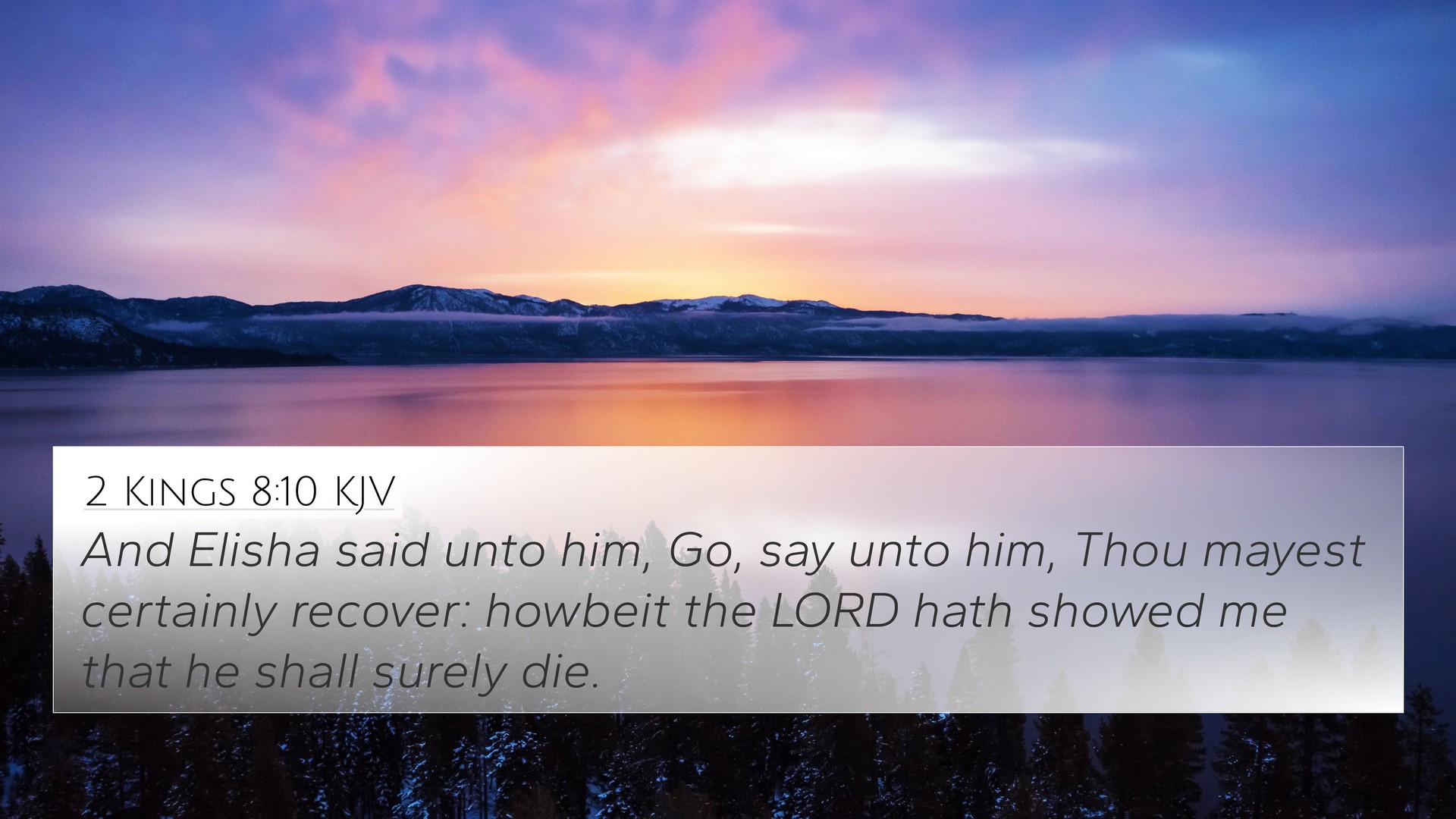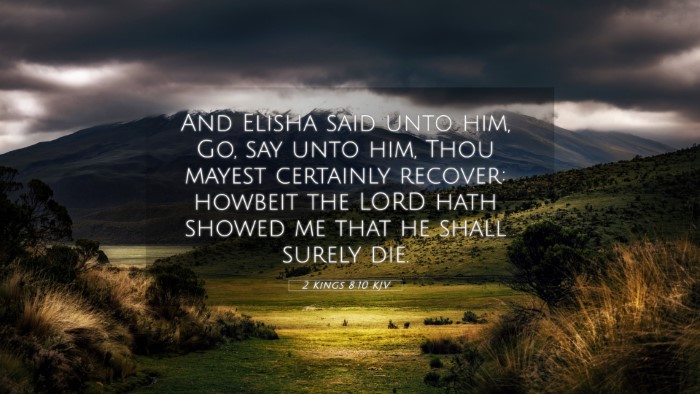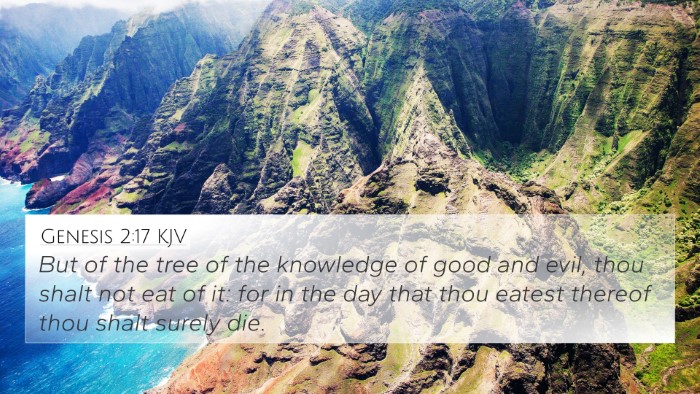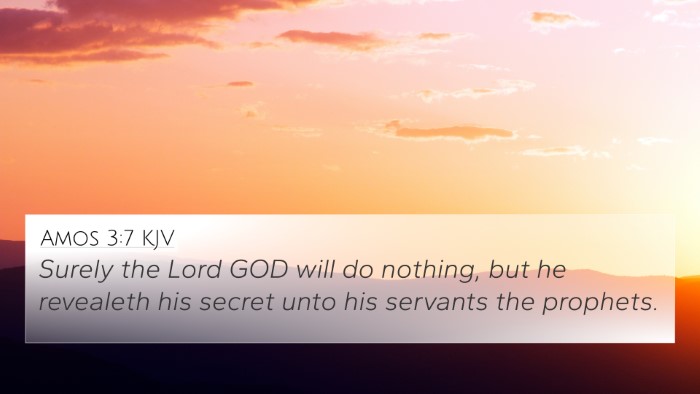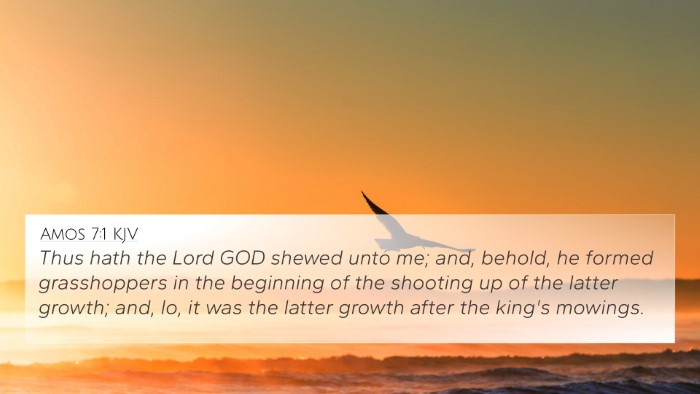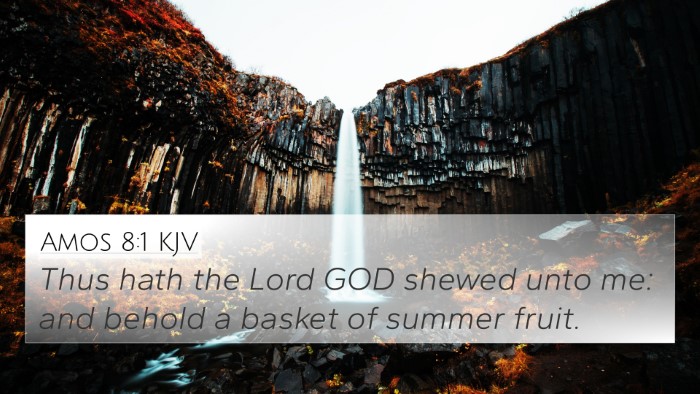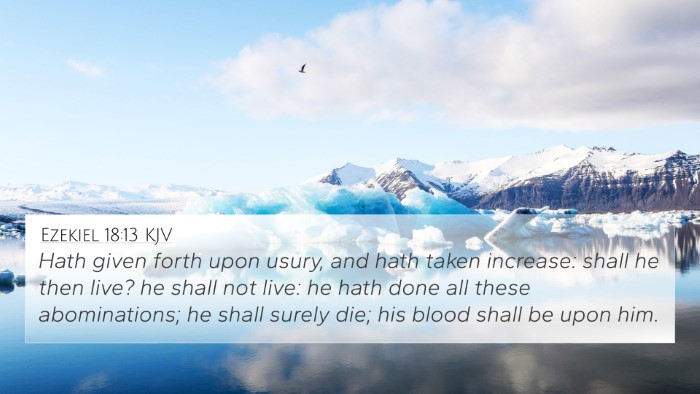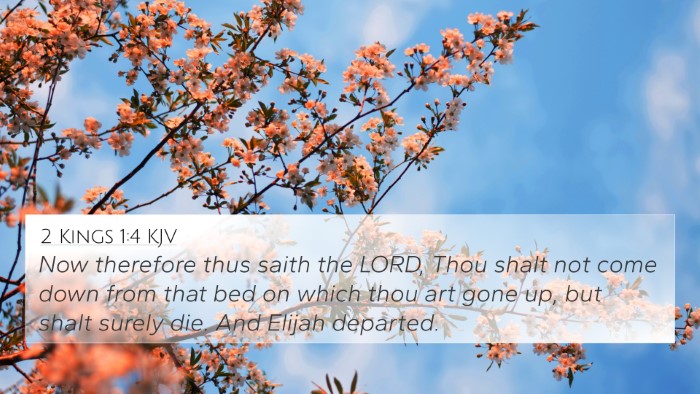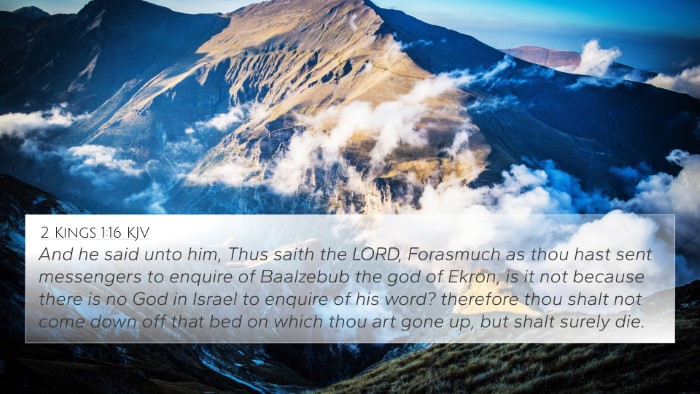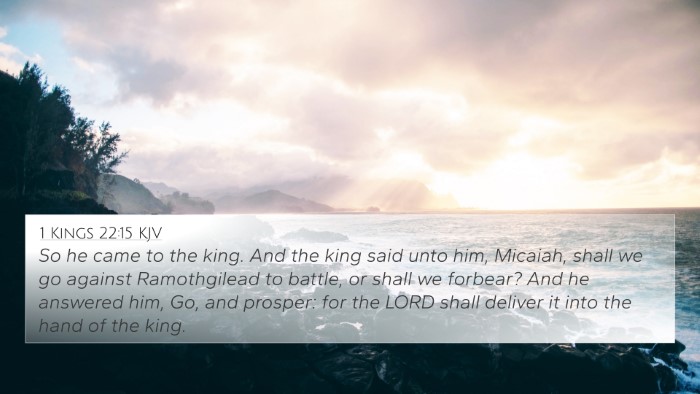Understanding 2 Kings 8:10
This exploration seeks to provide a rich understanding of 2 Kings 8:10, which reads: "And Elisha said unto him, Go, say unto him, Thou mayest certainly recover: howbeit the Lord hath shewed me that he shall surely die." This passage contains profound implications regarding prophecy, divine knowledge, and the complex interactions between human agency and divine will.
Summary of 2 Kings 8:10
In the context of 2 Kings 8:10, the prophet Elisha is addressing Hazael. This moment is significant as Hazael is being informed of a dual reality regarding the fate of his master, Ben-Hadad, king of Syria. On one level, there is an assurance that Ben-Hadad may recover, but on the other, Elisha reveals a divine insight that he will indeed die. This dual message serves as a testament to God's sovereignty and the complex nature of prophetic revelation.
Commentary Insights
- Matthew Henry's Commentary: Henry highlights the duality of Elisha’s message. He interprets Hazael’s future actions as a fulfillment of divine prophecy, underscoring God's control over human affairs. Hazael is to act upon the king’s condition with a selfish ambition, indicative of human nature's tendency toward greed and treachery.
- Albert Barnes' Notes: Barnes emphasizes the prophetic authority Elisha possesses and how God communicates His plans to His prophets. The layered message hints at the tragic outcome of Hazael’s rise, framing it within a broader narrative of God’s judgment against Israel and its leaders.
- Adam Clarke's Commentary: Clarke delves deeper into Hazael’s internal conflict, noting that while he is instructed to comfort the king, the knowledge of his destined actions looms over him. Clarke elucidates the idea of divine foreknowledge, suggesting that this instance is a practical demonstration that God's intentions are often unveiled through His prophets.
Thematic Connections
The themes in 2 Kings 8:10 resonate through various parts of Scripture, highlighting the intersections of prophecy, human actions, and divine sovereignty. Here are some key thematic connections:
- The concept of prophetic revelation, as seen in Amos 3:7 - "Surely the Lord God will do nothing, but he revealeth his secret unto his servants the prophets."
- Human agency versus divine will, reflected in Isaiah 46:10 - "Declaring the end from the beginning, and from ancient times the things that are not yet done."
- The tragedy of power and ambition echoed in Proverbs 16:25 - "There is a way that seemeth right unto a man, but the end thereof are the ways of death."
- God's judgment revealed through His prophets, comparable to Jeremiah 1:10 - “See, I have set thee over the nations and over the kingdoms, to root out, and to pull down, and to destroy, and to throw down, to build, and to plant."
- The dual nature of prophecies as in Matthew 10:34-36, which speaks to the divisive nature of the Gospel.
- Endings and beginnings outlined in Ecclesiastes 3:1, where 'To everything, there is a season' reflects God's larger design.
- Connections to the idea of assurance in faith amidst adversity as supported by Philippians 4:6-7, which teaches peace in uncertainty.
Application of Cross-Referencing
Understanding 2 Kings 8:10 in light of associated verses enhances its interpretation. Here are some methods to utilize cross-references:
- **Identify key phrases**: By recognizing common phrases such as "divine knowledge" and "human actions," numerous connections can be made.
- **Use a Bible concordance**: This tool aids in finding themes and words across the text, linking verses directly related to the themes in 2 Kings.
- **Compare narratives**: When analyzing similar circumstances, like prophetic encounters in the lives of other prophets (e.g., Jeremiah, Isaiah), insights abound.
- **Explore the Gospels**: Understanding how New Testament teachings respond to Old Testament prophecies can yield rich theology. For example, cross-referencing the outcomes of prophetic deeds with Christ’s fulfillment of law.
- **Utilize thematic guides**: Resources focused on thematic connections between verses can provide deeper insights into the overarching narratives that span Scripture.
Conclusion
In investigating 2 Kings 8:10, one uncovers layers of meaning that challenge the reader to consider the interactions of divine prophecy and human ambition. The connections to other biblical texts enrich the understanding of this verse, revealing God’s overarching plan and the unfolding of His will through prophetic voices like Elisha. Engaging in a comparative analysis of Bible verses teaches us about God's character, His providence, and how these ancient scriptures speak into our present contexts.
Related Bible Cross References
- 2 Kings 5:10 - God's prophetic word through Elijah and the obedience of Naaman.
- Isaiah 38:1 - Prophecy concerning King Hezekiah’s illness and healing.
- Luke 4:27 - Jesus referring to Elijah’s ministry towards Naaman.
- James 5:17-18 - Reflecting on the prophetic power of Elijah.
- Romans 8:28 - Emphasizing God's works in human history.
- Acts 2:17-18 - The fulfillment of prophecy concerning the end times.
- Revelation 19:10 - The spirit of prophecy being the testimony of Jesus.
